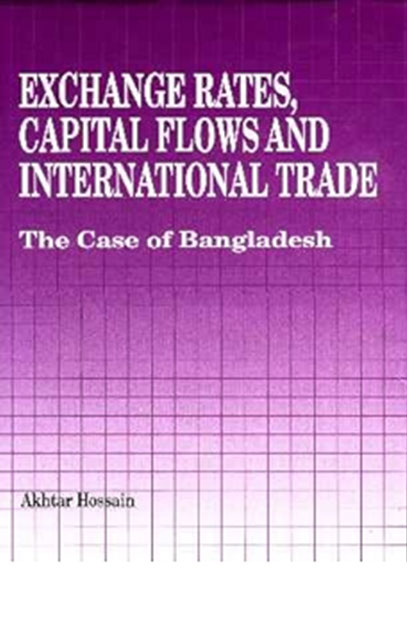- Shop
- International
- Exchange Rates, Capital Flows and International Trade: The Case of Bangladesh
Exchange Rates, Capital Flows and International Trade: The Case of Bangladesh
https://uplbooks.com/shop/9789840515547-exchange-rates-capital-flows-and-international-trade-the-case-of-bangladesh-6501 https://uplbooks.com/web/image/product.template/6501/image_1920?unique=3d813f3
| Language: English |
Tags :
Book Info
The recent Asian and Mexican currency crises have provided a somber lesson, that, in a global economic setting, the exchange rate policy, and more broadly, monetary and financial policy cannot be treated in a business in the usual manner. The stake is high because exchange rate policy has profound impact on current and future macroeconomic performance. This book is a modest attempt to highlight the above contention from a broad perspective for the emerging market economy of Bangladesh. The work is a research-based book, comprising a number of self-contained and interrelated essays on policy-oriented issues in exchange rate economics. Dr. Hossain discusses a number of key issues in currency devaluation with data from Bangladesh and develops a macroeconomic model along the lines of the tradable-nontradable goods approach to international macroeconomics. He analyses the movement of both the real exchange rate and trade balance in Bangladesh since the early 1970s. The author also makes an in-depth study of two politically-sensitive economic issues, viz. the economic and political events that led to the 1974 Bangladesh famine and Bangladesh's large and growing trade deficits with India since the late-1980s. The concluding chapter reflects on dynamics of Bangladesh's politics and the present state of economic and political institutions that support economic reforms and the process of macroeconomic policymaking. Students of economics, policymakers and researchers on macroeconomic issues in developing countries and in Bangladesh will find this book useful.

Akhtar Hossain
Akhtar Hossain is a Senior Lecturer in Economics at the University of Newcastle, Australia. Currently he is working at the IMF-Singapore Regional Training Institute as International Economist. He has earned MA (1984) and Ph.D (1989) degrees in Economics from the University of Melbourne and La Trobe University, respectively, Australia. For his Ph.D research, he was awarded the 1989 La Trobe University Medal. Dr. Hossain has specialised in teaching and research in monetary and financial economics with a focus on Asian developing economics in general and the Bangladesh economy in particular. He is the author/co-author of six books, more than 30 research articles in journals and 10 chapters in edited volumes. His other publications are: Inflation, Economic Growth and the Balance



